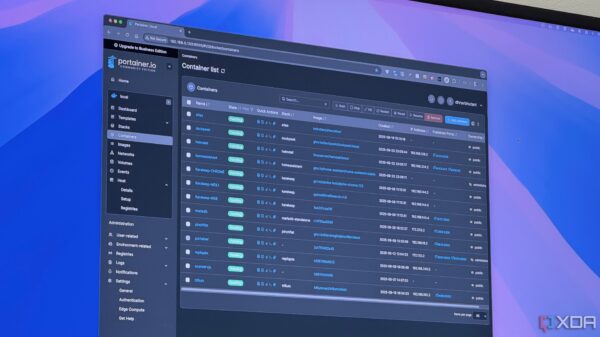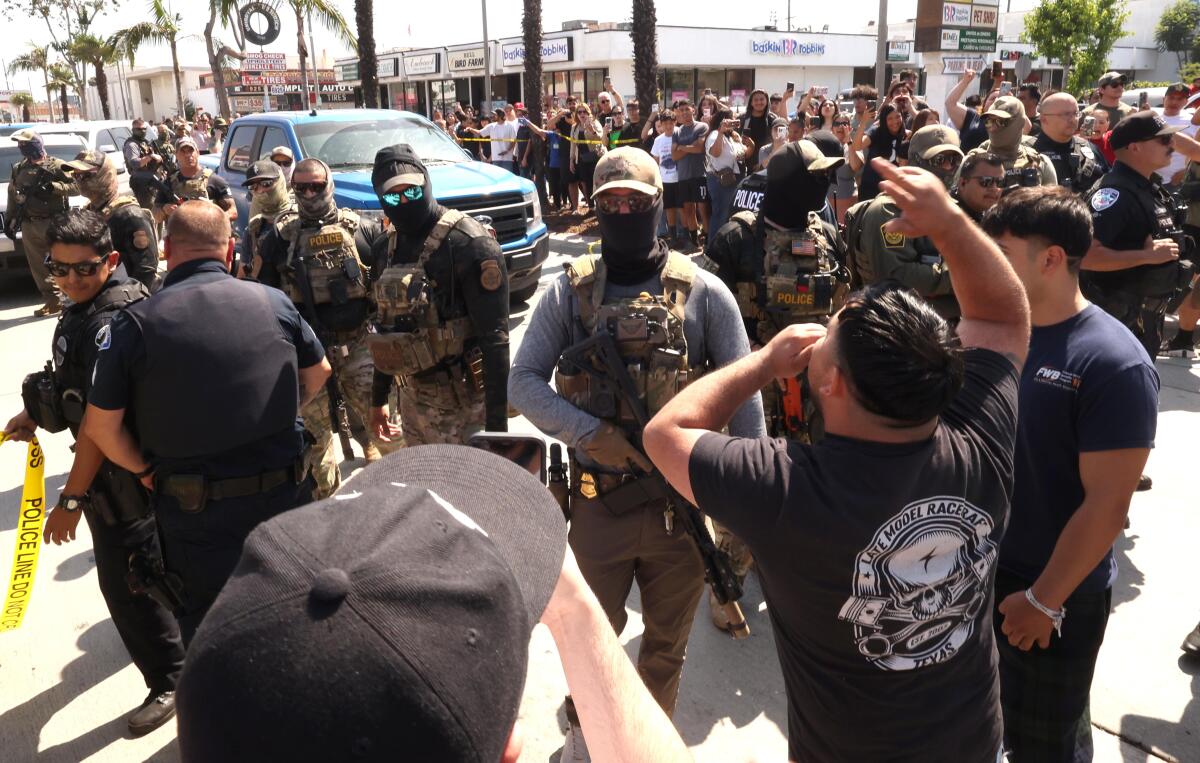UPDATE: A pivotal ruling from the 9th Circuit Court of Appeals is poised to block controversial immigration enforcement tactics employed by the Trump administration. This decision comes after a federal judge halted U.S. Customs and Immigration Enforcement (ICE) from conducting “roving patrols” aimed at indiscriminately detaining individuals across Southern California.
During arguments held on July 24, 2023, the appellate judges expressed significant skepticism toward the government’s actions, questioning the legality of ICE’s operations. Judge Ronald M. Gould probed, “What would motivate the officers to grab such a large number of people so quickly and without reasonable suspicion to detain?” This inquiry reflects an urgent examination of constitutional rights under the Fourth Amendment.
Earlier this month, Judge Maame Ewusi-Mensah Frimpong issued a temporary restraining order against ICE, stating that their practices violate constitutional protections against unreasonable searches and seizures. The Justice Department has labeled this injunction as “the first step” in what they describe as a “wholesale judicial usurpation” of federal authority.
Deputy Assistant Attorney General Yaakov M. Roth argued, “It’s a very serious thing to say that multiple federal government agencies have a policy of violating the Constitution.” However, his defense faltered as the judges from the liberal wing of the court raised concerns over the lack of reasonable suspicion in ICE’s operations, which include targeting locations such as Home Depot parking lots and car washes.
Frimpong’s order specifically prohibits any use of race, ethnicity, language, accent, location, or employment as factors in immigration enforcement across key counties in Southern California, including Los Angeles and Orange. Judge Marsha S. Berzon noted the absurdity of agents sweeping through public spaces, asking individuals about their immigration status without any substantial evidence.
The legal battle highlights contrasting interpretations of the Fourth Amendment. The Justice Department cites the 1983 case of City of Los Angeles vs. Lyons, which ruled against blanket bans on police chokeholds. However, civil rights advocates, including the ACLU, reference the Easyriders Freedom F.I.G.H.T. vs. Hannigan case, which affirms broader protections for citizens against arbitrary enforcement.
In the courtroom, Mohammad Tajsar, representing the ACLU of Southern California, emphasized that the federal policy effectively encourages indiscriminate arrests. “They have said, ‘If it ends in handcuffs, go out and do it,’” he stated, underscoring the human impact of these aggressive tactics on families and communities.
As the 9th Circuit deliberates, a ruling could emerge within days, with profound implications for immigration enforcement practices nationwide. If the court upholds Frimpong’s decision, it may lead to a Supreme Court confrontation. Roth indicated that the administration would appeal without a favorable outcome from the appellate panel.
The urgency of this situation cannot be overstated. With implications that could reshape the landscape of immigration law and civil rights, the nation watches closely as developments unfold. The legal community, advocacy groups, and affected individuals wait with bated breath for the court’s decision, which is expected to echo throughout the country.
Stay tuned for more updates as this critical case progresses.







































































